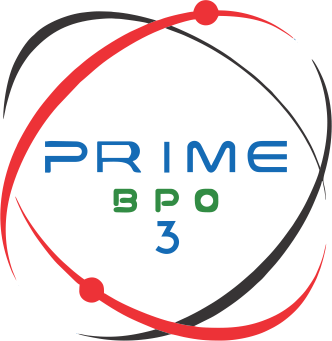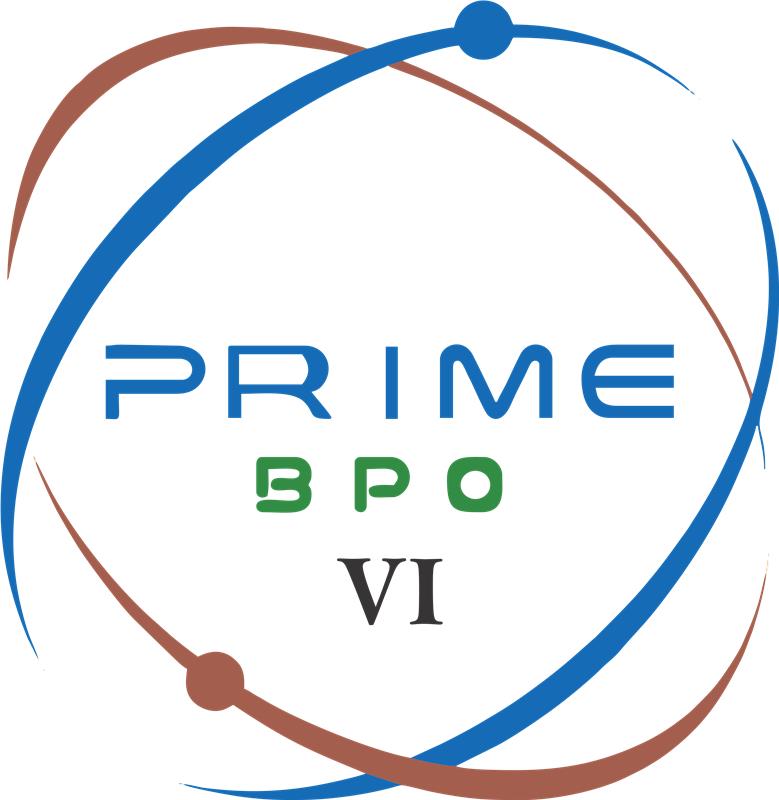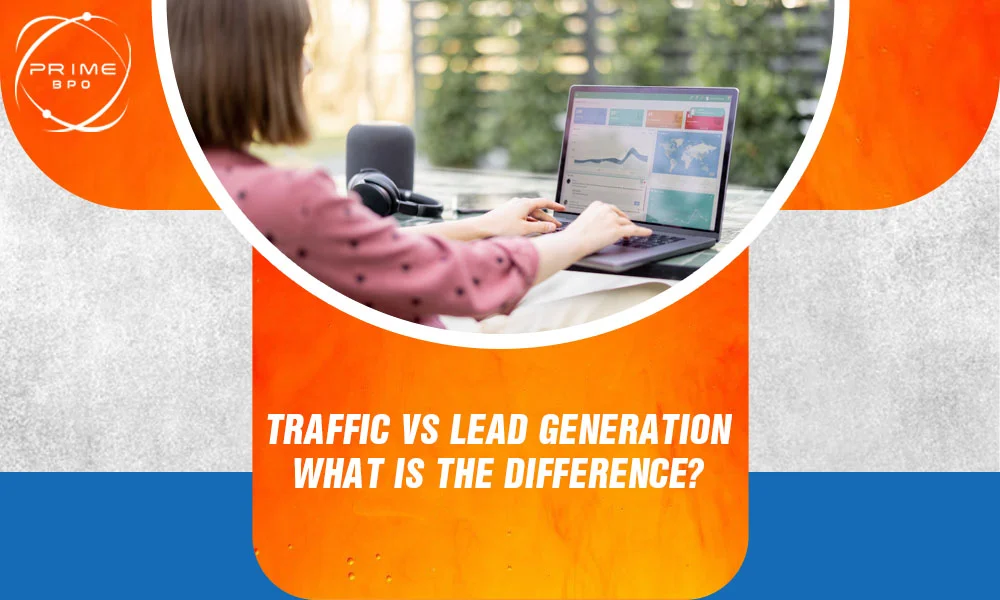In the world of digital marketing, two key terms often come up: traffic vs lead generation. While they might sound similar, they serve distinct purposes in online business growth. A website's traffic refers to the number of visitors it receives, while a website's lead generation refers to converting those visitors into customers.
A successful marketing strategy drives visibility and conversions by understanding the difference between traffic and lead generation. We'll discuss traffic vs lead generation, their importance, strategies, and how they work together to drive business growth in this blog post. Let’s have a look together!
Traffic: A Volume Metric
Traffic is often viewed as a volume metric, representing the sheer number of visitors landing on your website or digital platforms. It serves as a quantitative measure, indicating the level of activity and engagement your online presence is receiving. Traffic generation encompasses all types of visitors, including those who may or may not be interested in your products or services.
Get Free Quotes
Customized Options Await
While high traffic can be indicative of a popular website, it does not guarantee conversions or business success on its own. Instead, it provides a foundational layer for further marketing efforts, highlighting the potential audience reach and the effectiveness of your marketing strategies in attracting visitors.
Importance of Traffic
Traffic plays a crucial role in the success of any online venture. Here are some key reasons why traffic is important:
-
Visibility and Brand Awareness
Higher traffic means more people are exposed to your brand, increasing the likelihood of brand recall and recognition. This visibility is crucial for establishing your brand authority and attracting potential customers.
-
Website Performance
Monitoring traffic helps you assess how well your website is meeting your goals. By analyzing traffic patterns, you can identify which pages are popular, how users navigate your site, and where improvements can be made to enhance user experience.
-
Lead Generation
While not all traffic converts into leads, a higher volume of traffic generally leads to more potential leads. This is because more visitors mean more opportunities for engagement and conversion, ultimately contributing to your lead-generation efforts.
-
SEO Benefits
Search engines consider website traffic as a ranking factor. Higher traffic indicates that your website is relevant and valuable to users, which can improve your search engine rankings. This, in turn, can lead to even more traffic as your site appears higher in search results.
-
Monetization Opportunities
If you monetize your website through advertising or affiliate marketing, higher traffic can translate into increased revenue. More visitors mean more potential clicks on ads or affiliate links, which can boost your earnings.
Strategies to Increase Traffic
There are several effective strategies to increase traffic to your website:
-
SEO Optimization
Implementing SEO best practices can improve your website's visibility in search engine results, leading to more organic traffic. This includes keyword research, on-page optimization, and building high-quality backlinks.
-
Content Marketing
Creating high-quality, valuable content can attract organic traffic to your website. This includes blog posts, articles, infographics, and videos that are relevant to your audience and optimized for search engines.
-
Social Media Marketing
Engaging with your audience on social media platforms can drive traffic to your website. Sharing your content, running social media ads, and participating in conversations can help increase visibility and attract visitors.
Get Free Quotes
Customized Options Await
-
Email Marketing
Building an email list and sending targeted email campaigns can drive traffic to your website. This includes promoting new content, products or offers to your subscribers to encourage them to visit your site.
-
Paid Advertising
Running paid advertising campaigns, such as Google Ads or social media ads, can help you reach a larger audience and drive traffic to your website. This can be especially effective for promoting specific products, services, or promotions.
Lead Generation: A Quality Metric
Lead generation is not just about quantity; it's about the quality of the leads you generate. Quality leads are those who are genuinely interested in your products or services and are more likely to convert into paying customers.
Unlike traffic, which measures the volume of visitors to your website, lead generation goals are to focuse on capturing the contact information of potential customers and nurturing them through the sales funnel. By focusing on quality leads, you can improve your conversion rates and ultimately drive more revenue for your business.
Importance of Lead Generation
Lead generation is crucial for businesses for several reasons:
-
Quality Leads
By focusing on lead generation, businesses can attract high-quality leads who are genuinely interested in their products or services. These leads are more likely to convert into paying customers, leading to higher sales and revenue.
-
Relationship Building
Lead generation allows businesses to build relationships with their audience. By engaging with leads through personalized communication and targeted marketing efforts, businesses can nurture these relationships and convert leads into loyal customers.
-
Sales Opportunities
Leads are the foundation of a successful sales pipeline. By generating leads, businesses create opportunities to convert prospects into customers, driving sales and business growth.
-
Cost-Effective Marketing
Compared to traditional marketing methods, lead generation can be a cost-effective way to acquire new customers. By targeting specific audiences and focusing on quality leads, businesses can maximize the return on their marketing investment.
-
Competitive Advantage
In today's competitive market, lead generation can give businesses a competitive advantage. By effectively generating and nurturing leads, businesses can stand out from their competitors and attract more customers.
Strategies for Targeted Lead Generation
There are several effective strategies to achieve lead generation goals. Here are some of them so that you can acquire targeted lead generation:
-
Content Offers
Creating valuable content offers is a great way to attract potential leads. Make sure your content is relevant to your audience's interests and provides valuable insights or solutions to their problems. Promote your content offers through various channels, such as social media, email campaigns, and on your website, to maximize visibility and attract more leads.
-
Email Marketing
Get Free Quotes
Customized Options Await
Email marketing is a powerful tool for nurturing leads and guiding them through the sales funnel. Segment your email list based on lead behavior and interests to send targeted and personalized campaigns. Provide valuable content, special offers, and incentives to encourage leads to take the next step toward making a purchase.
-
Landing Pages
Designing dedicated landing pages is essential for converting visitors into leads. Ensure your landing pages are visually appealing, easy to navigate, and communicate the value proposition of your offer. Use persuasive copywriting and compelling visuals to capture visitors' attention and encourage them to fill out the form or take the desired action.
Difference between Traffic and Lead Generation
While both traffic vs lead generation are essential components of a successful online presence, they serve distinct purposes and involve different strategies. Here are the major differences between traffic vs lead generation:
1- Definition
Traffic: Traffic generation refers to the volume of visitors landing on your website or digital platforms. It measures the overall activity and engagement your online presence receives.
Lead Generation: Lead generation involves capturing the contact information of potential customers who have shown interest in your products or services. It focuses on converting website visitors into leads by encouraging them to take a specific action, such as filling out a form or subscribing to a newsletter.
2- Purpose
Traffic: The primary purpose of traffic is to increase the visibility and reach of your website. It indicates how many people are visiting your site but does not necessarily guarantee conversions.
Lead Generation: The primary purpose of targeted lead generation is to convert website visitors into leads who have expressed interest in your offerings. It focuses on quality over quantity, aiming to nurture leads through the sales funnel and convert them into paying customers.
3- Measurement
Traffic: Traffic is measured in terms of the number of visitors to your website or digital platforms. It can be tracked using web analytics tools to monitor trends and patterns over time.
Lead Generation: Lead generation is measured by the number of leads captured through specific actions, such as form submissions or email sign-ups. It focuses on capturing contact information and tracking the effectiveness of lead-generation strategies.
4- Conversion Focus
Traffic: While high traffic generation is desirable, not all visitors may convert into leads or customers. Traffic focuses on attracting a broad audience to your website, regardless of their readiness to make a purchase.
Lead Generation: Lead generation is specifically geared towards converting website visitors into leads and ultimately customers. It prioritizes attracting and engaging with potential customers who are more likely to make a purchase or take a desired action.
5- Strategy
Traffic: Strategies to increase traffic often involve tactics such as search engine optimization (SEO), content marketing, social media marketing, and paid advertising. These strategies aim to increase visibility and drive more visitors to your website.
Lead Generation: Strategies for lead generation focus on capturing the contact information of potential customers through tactics such as gated content, email marketing, landing pages, and lead magnets. These strategies aim to encourage visitors to take specific actions that indicate their interest in your products or services.
Summing Up
While traffic vs lead generation are interconnected, they serve distinct purposes in a digital marketing strategy. Traffic focuses on attracting visitors to your website, while lead generation aims to convert those visitors into leads and ultimately customers. By understanding the differences between the two and implementing targeted strategies, you can maximize the effectiveness of your marketing efforts and drive business growth.
Frequently Asked Questions (FAQs)
1- What is the main difference between traffic vs lead generation?
Traffic refers to the volume of visitors landing on your website, while lead generation focuses on converting those visitors into potential customers by capturing their contact information.
2- Why is it important to distinguish between traffic vs lead generation?
Understanding the difference helps businesses create a more effective marketing strategy that targets both visibility and conversions.
3- How does traffic contribute to business success?
Higher traffic can increase brand visibility, improve website performance, and create more opportunities for lead generation and sales.
4- What makes lead generation a quality metric?
Lead generation focuses on capturing the contact information of potential customers who are genuinely interested in your products or services, leading to higher conversion rates and revenue.
5- How do traffic vs lead generation work together to drive business growth?
Higher traffic provides more opportunities for lead generation, while effective lead generation strategies can convert traffic into quality leads and customers, ultimately driving business growth.






